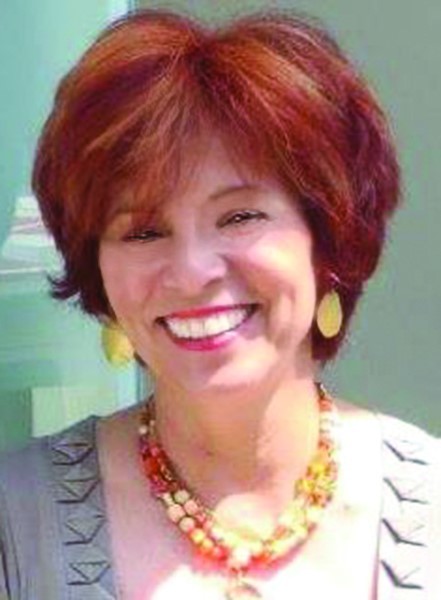Israeli mother, grandmother talks about Mother’s Day
In honor of the Jewish Voice’s Mother’s Day issue, we spoke with an Israeli mother to find out how Mother’s Day is celebrated in Israel, as well as what it’s like to raise a family in the Jewish state.
Meet Mira Finkelstein, a devoted, hardworking Israeli mother, grandmother and businesswoman, who found a way to raise her family while working as an executive in the corporate world in Israel.
Finkelstein has enjoyed a successful 45-year career in advertising and marketing and is currently a partner at an Israeli advertising agency, “Shimoni Finkelstein FCB,” a partner agency to the global FCB (Foote, Cone & Belding) network. Throughout her career, she has worked with countless brands, both global and Israeli, from Jeep to Ferrero Rocher, IBM, Revlon and many more.
Mira lives in Tel Aviv with her husband, Zvika. They have three adult children and six grandchildren.
Daughter Shiri, earned a Ph.D. in Biology from Tufts University near Boston. She is a mother herself with three children: Elad, 12, Guy, 9, and Ben, 4 1/2.
Son Gil, is a Ph.D. candidate in finance and risk management at The Hebrew University in Jerusalem and has two children: Daniel, 5 1/2, and Mika who is a little over a year.
Son Ron, earned a bachelor’s degree in communications and is currently a brand manager at Slotomania, a cellular game from the Playtika gaming company, which was bought in 2016 by a Chinese company for $4.4 billion. He has one daughter, Noga, who is a year-and-a-half old.
The entire family lives within a 30-minute drive from one another.
Excerpts from our interview with Finkelstein follow:
Q: How is Mother’s Day celebrated in Israel?
A: Actually, in Israel, because new forms of families arise, we celebrate “Family Day” instead of “Mother’s Day.” But, it is still mostly a celebration of the mothers.
Q: What do families in Israel usually do to celebrate their mothers on Mother’s Day?
A: Usually kids and fathers will prepare a pampering breakfast, send flowers and, most importantly, obey their mother. There are fewer arguments on Mother’s Day. Schools and kindergartens teach songs about mothers, and they prepare creative things to bring home.
Q: What is the most memorable gift you have received on Mother’s Day?
A: I received a beautiful and emotional photo album of my kids when they were still at home.
Q: If you could invite three Jewish mothers from history to your dinner table, who would they be, and why?
A: I would invite Golda Meir because she was the first woman prime minister and set such an example to the world, Anne Frank because she was courageous, and Queen of Sheba because she was beautiful and feminine.
Q: What is it like to raise children in Israel? What is the best part and what are the most difficult parts?
A: The best part is about being a family. Israel is very much family-oriented, and the pressure to get married and have kids is really strong. Families get together on Shabbat eve to have the Friday dinner and Kiddush, and every High Holiday families gather with grandparents, parents, and grandchildren. Most families have three to four kids and religious families tend to have five to seven.
The most difficult part in raising kids in Israel is the absolute freedom they have. They are welcome to express their opinions and wishes, and parents are expected to agree and follow. From childhood, kids are treated like grownups, for better and for worse.
Q: What is it like to have a child in the army? Does it cause any anxiety/does it make you proud?
A: A child in the army means, “the whole family is recruited.” You are proud, but worried. You wait anxiously for a phone call and for your son or daughter to come home, and, if they don’t, you will go to visit him or her at the army base. Also, the army turns a boy / teenager into a man. It strengthens family bonding, especially after the turbulence of adolescence.
Q: What characteristics do you think all Israeli mothers have in common?
A: They are “hovering mothers/helicopter mothers.” At any given moment, a mother knows precisely where her kids are, especially thanks to the cell phones every kid has by the age of 8 or 9. At any time, a mother will answer the phone from their teacher, school, kindergarten, caretaker, etc., even if she is in the middle of a board meeting.
Q: Best piece of motherly advice you can give?
A: Treat your kids with respect and behave as you would like them to behave, showing a personal example for them to follow.
SAM SERBY is a freelance writer who lives in East Greenwich. He previously worked at the Peres Center for Peace in Tel Aviv.








